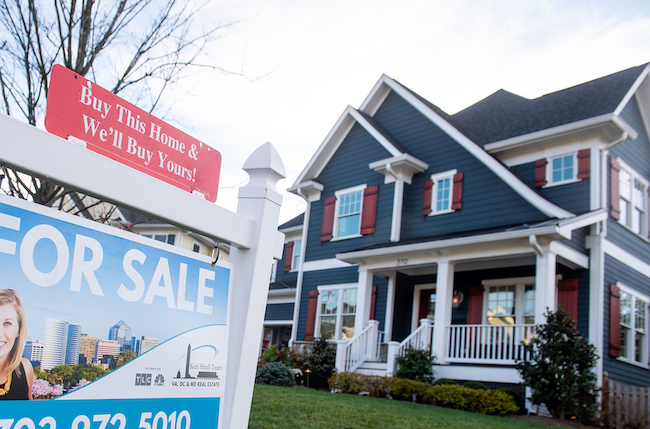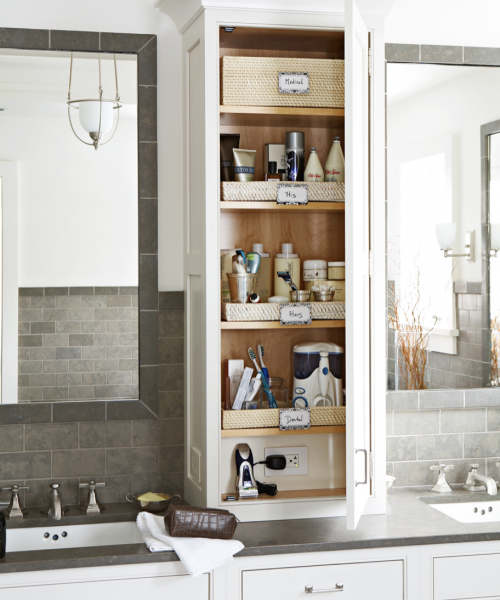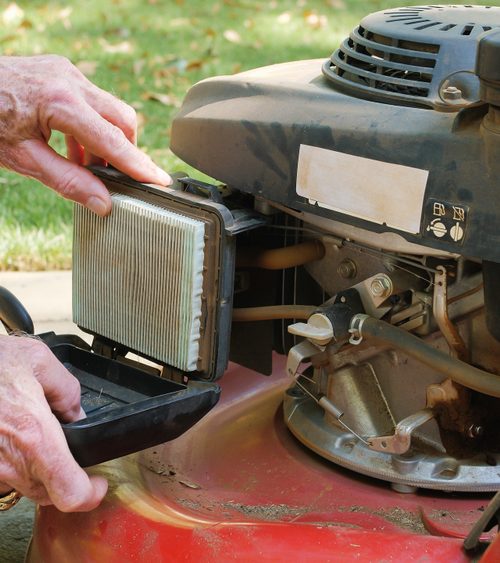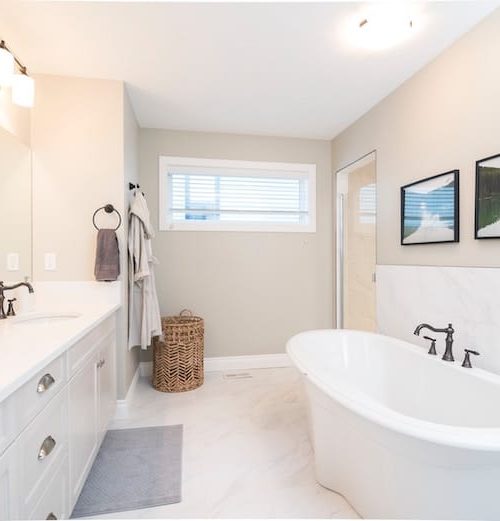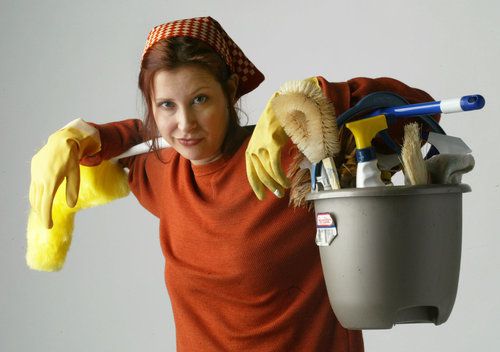By Mia Taylor | BHG.Com
Troy Warren for CNT
The housing market is red-hot right now, but if you’re waiting for a massive market correction, don’t count on it. Real estate industry experts weigh in with predictions for home buying and selling trends.
It’s hardly a secret that real estate prices across the country have been skyrocketing. Recent data from Redfin, a real estate brokerage, shows that median home prices are up 20% year-over-year. At the same time, many properties are under contract for purchase within a mere one to two weeks of hitting the market and it’s not unusual for prospective buyers to offer 10% or even 20% over the asking price. In fact, Redfin reports that 46% of homes sold for more than their list price. As if that’s not enough, many buyers are paying cash for homes. Yes, cash. You read that right.
“We are in a record-breaking housing market with asking prices at an all-time high ($357,200), median sale prices at an all-time high ($347,500), the share of homes selling over list price at an all-time high (46%), and homes selling faster than ever before: 58% under contract within two weeks of listing and 46% within one week of listing,” says Redfin Chief Economist Daryl Fairweather. “Ask just about any real estate agent, and they’ll tell you they’ve never seen a market this hot.”
All of which has left many watchers and potential buyers scratching their heads and wondering if we’re due for a market crash similar to the housing market burst that brought on the Great Recession in 2007. The short answer to that question? No, a similar crash is not likely. And there are many reasons for that.
Here’s a closer look at some of the most obvious factors contributing to widespread confidence that there will be no real estate market crash in 2021 (or anytime soon), as well as insight into what real estate and industry experts do see happening in the marketover the coming months—and what it all means for potential buyers.
Factors Contributing to the Overheated Housing Market
First, it’s important to understand that there are numerous elements driving the current housing market and they differ from what was taking place before the Great Recession.
“Those of us who experienced the housing crash really don’t want to go back to the days of underwater sellers and houses sitting on the market for months at a time without a single offer. The good news is that this isn’t 2008 and 2021 has a few things going for it that the sub-prime market could only dream about back when ‘short sale’ became a household word,” explains Debra Remington, managing broker for Texas-based Remington Team Realty.
1. Lack of Inventory
One of the biggest contributors to the current red-hot market and sky-high prices is a dearth of inventory. This is an explanation you’ll hear from experts far and wide.
The shortage of inventory is caused by a few factors, including owners not wanting strangers (potential buyers) traipsing through their living quarters amid a global pandemic, thus far fewer homes being put on the market for sale.
The second issue is the pace of new construction, which has been slower than normal. Years of sluggish new construction in the United States has finally caught up, and many builders went under during the Great Recession.
“Not enough people are listing their homes for sale, and new construction isn’t keeping pace with demand,” says Fairweather. “America built fewer homes in the 2010s compared to any decade going back to the 1960s.”
In other words, one of the primary drivers behind the current overheated housing market is very different than what set the stage for the 2007 crash. Today’s boom is not due to loose lending practices flooding the market with unqualified buyers.
“What caused the market to crash was related to real estate and the lending practices that were happening. People were buying homes that shouldn’t have been buying homes,” says Dave Nations, founder of The Nations Network. “They couldn’t actually afford the house they were buying but the loan product allowed them to at least get in the house short-term.”
Experts predict that the current record low inventory will keep demand at record levels. But in the run-up to the Great Recession, the market was characterized by limiteddemand and too much inventory, says Remington.
2. Historic Low Interest Rates
Historic low interest rates are also contributing to current conditions, encouraging a steady stream of buyers to enter the market. The Federal Reserve repeatedly lowered interest rates amid the economic downturn caused by the COVID-19 pandemic. And it doesn’t appear that those rock-bottom rates will disappear anytime soon, yet another reason buyer demand is likely to remain strong and thus no market crash.
“The Federal Reserve has no immediate plans to change interest rate strategy. If they stay low, buyers will continue to purchase as even if they are paying a premium, they are locking in really great rates for the next 30 years,” says San Francisco-based realtor Julie Upton.
3. Millennial Buyers Entering the Market
Millennials are also entering the market like never before, which is playing a role in market conditions. According to the 2021 NAR Buyer and Seller Report, the median age of first-time homebuyers is now 33, which is coincidentally also the average age Millennials turn this year.
“Millennials buying homes have already significantly impacted the market,” says Grace Keister of California-based First Team Real Estate. “At First Team, we’ve seen a big uptick in Millennial clients. I’ve personally referred two friends in the last year to buyers’ agents; [I] know about two other friends who are casually searching, and another couple who just purchased after six months of searching. We also had a new agent who closed 15 transactions in her first year, all buyers that she met through her TikTok presence.”
4. Lending Practices Tightened
Perhaps one of the most meaningful indicators that a real estate market crash is unlikely in 2021 can be found in today’s lending environment, which is far stricter than it was prior to 2007. As Upton likes to say, the days of NINJA loans (no income, no job, no assets) are long gone.
“These risky loans were common prior to the market crash,” explains Upton. “These days, lenders are very strict when qualifying buyers, and changes to appraisal laws have also tightened up the appraisal practices. Taken together, there are fewer risky mortgages in the financial system.”
Why a 2021 Market Crash is Unlikely
Market crashes generally take place when there’s a serious breakdown somewhere in the system. But as outlined by so many experts, that’s not currently a problem.
“Absent a catastrophe in the financial markets or in the political arena, we fully expect demand for housing to remain strong,” says Michael Shapot, a New York based real estate broker with The Shapot Team.
Upton supports Shapot’s assessment. “While anything can happen that might impact the housing market, there are no key indicators right now to suggest that there will be a crash in 2021,” she says.
Bankrate Chief Financial Analyst Greg McBride says that while the recent pace of home price appreciation isn’t sustainable over the long-run, that doesn’t mean prices are at risk of some sort of sharp drop or correction. It would likely take a return to the questionable lending practices of the early 2000s to trigger such a collapse.
“If lending standards loosen and we go back to the wild, wild west days of 2004 to 2006, then that is a whole different animal,” McBride explains. “If we start to see prices being bid up by the artificial buying power of loose lending standards, that’s when we worry about a crash.”
What Is Likely to Happen with the Housing Market?
As the vaccine rate of Americans continues to increase and more homeowners feel comfortable listing properties and having strangers walk through their homes, market conditions will likely become more balanced. There will be more supply and prices should adjust somewhat.
“The gradual increase in inventory will begin to slowly alleviate the demand created by the inventory shortage,” says Colby Hager of Texas-based Capstone Homebuyers. “This rather gradual return to normal will create a larger pool of options for buyers which will lead to more days on market for houses. The bidding wars seen today that are a big factor of price increases will begin to die out because buyers will have more housing options to choose from and there will be a drop in competition between buyers for any one house.”
Indeed, Zillow data supports the projections of Hager and other industry professionals; while the early weeks of 2021 were marked by a scarcity of new home listings as sellers stayed on the sidelines in the face of an uptick in COVID-19 cases, data indicates sellers are starting to come back. New listings nationwide rose by 30% in the four weeks between late February and late March.
What Does It All Mean?
So what do all of these insights and predictions add up to? Is it good news for homebuyers? In many ways, that depends on your buying timeline.
“Homebuyers who have the ability to wait for the bidding wars to disappear, prices to stagnate, and listings to stay on the market longer will get more house for their dollar,” says Hager. “Homebuyers who can afford to sit on the sidelines during this overheated housing market will definitely be rewarded.”
And if you’re in the market to buy right now and can’t wait it out? “Remain patient. Exercise caution. Don’t ever pay more than you can comfortably afford,” says Shapot. “Consider other options, perhaps in different neighborhoods or off market properties that haven’t yet been listed. Look at properties that have been on the market a while and appear overpriced; there is less likelihood that there will be a bidding war and perhaps the homeowner will be sensible and consider reasonable offers.”
In Other NEWS


























